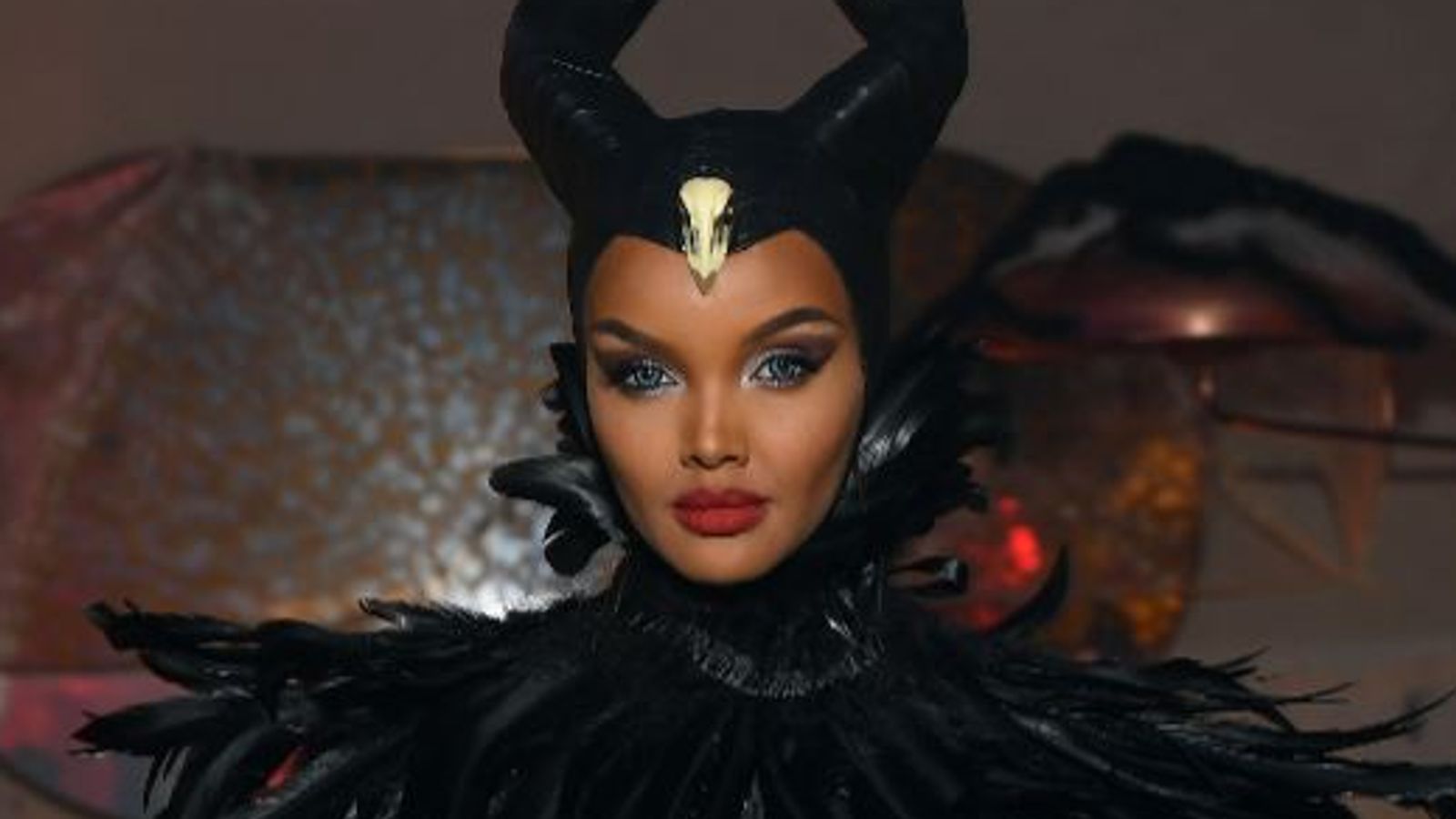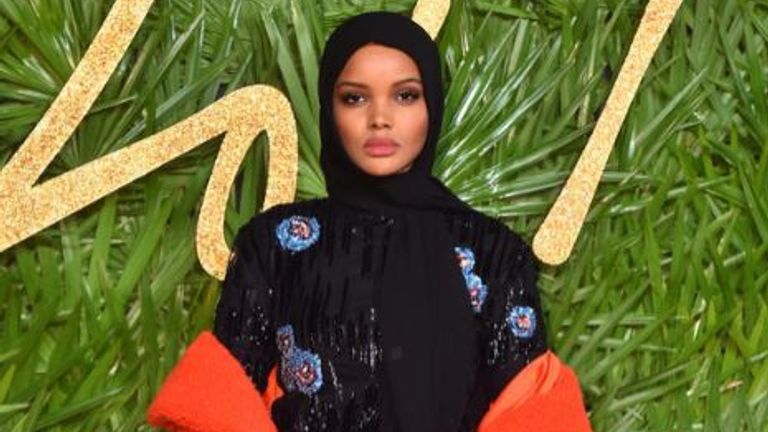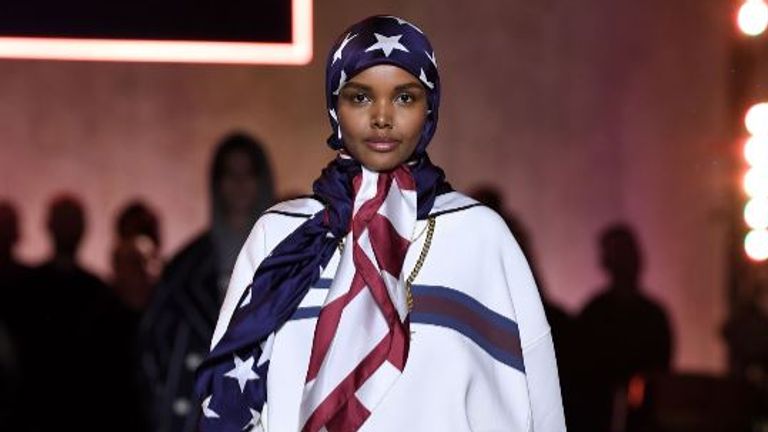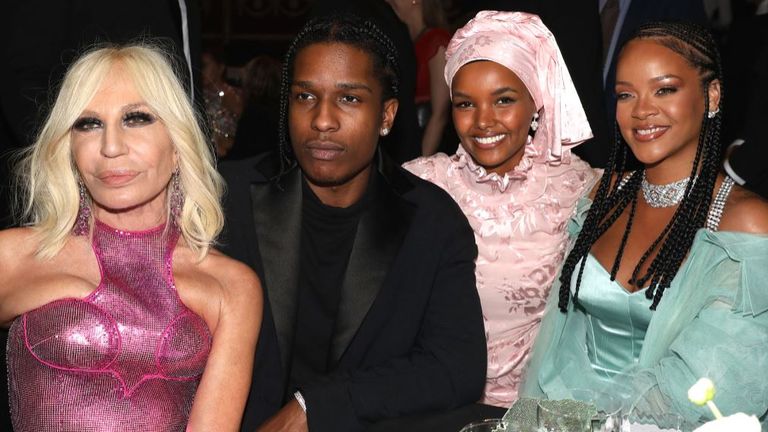US fashion model Halima Aden – who has fronted campaigns for the likes of Rihanna’s Fenty Beauty and Kanye West’s Yeezy – is quitting runway shows, saying the industry has forced her to compromise her religion.
When Aden made her modelling debut at New York Fashion week in 2017, aged just 19, she became an overnight star after being hailed as the world’s first Muslim hijab-wearing supermodel.
The 23-year-old, who was born to Somali parents in a Kenyan refugee camp, is considered a trailblazer after featuring on the covers of British Vogue, Vogue Arabia and Allure.
However, despite the success, Aden said the high fashion industry had made her lose sense of “the real Halima” and made her re-evaluate her modelling career.
Aden – who is signed to IMG Models – posted a series of Instagram stories detailing the struggles that came with her line of work while balancing her identity as a practicing Muslim woman.
She told her 1.2m followers that the COVID-19 pandemic gave her the opportunity to reflect on her values and helped her realise that had she continued down her current path, she may have stopped wearing and embodying the values attached to her hijab “completely”.
Aden said: “As I’ve said many times… being a minority inside of a minority inside of a minority is never easy.
“Being a ‘hijabi’ is truly a journey with lots of highs and lows.”
After she made her first break, the model was keen to represent her faith and community on a mainstream platform – writing that she was “so desperate” for any “representation” that she had “lost touch” with who she was.
Aden added she often put herself in compromising positions – including missing obligatory prayer times in the Islamic faith and agreeing to being draped with a pair of jeans in place of a headscarf.
After the jeans shoot with American Eagle Outfitters, Aden said she “sobbed” in her hotel room.
While the campaign encouraged consumers to “find your style” – Aden said she felt she had lost her own.
The model usually chooses to wear longer skirts and dress styles as a visible marker of modesty – but she said swapping jeans for a hijab cheapened and compromised her act of worship.
She said: “But… this isn’t even my style?? Never was. Why did I allow them to put jeans on my head when at the time I had only ever worn skirts and long dresses?
“I went back to my hotel room & just sobbed after this shoot because deep down I knew this wasn’t it. But was too scared to speak up.
“The truth is I was very UNCOMFORTABLE. This just ain’t me.”
She said what she went through was a “common struggle” – particularly among minority groups in fields where they are underrepresented.
Aden said people would “slowly start compromising” their most basic principles in order to “fit in”.
She told her fans on Twitter not to “sell out” and said she blamed herself for caring “more about the opportunity” than “what was actually at stake”.
She said her mother helped anchor her through the constant struggles of balancing conformity with retaining aspects of her personal cultural identity.
“[She] has been pleading with me for years to open my eyes,” said Aden. “Thanks to Covid & the break away from the industry I have finally realized where I went wrong in my personal hijab journey.
“Looking back now I did what I said I would never do.”
She added: “My hijab journey was the STRONGEST when I was surrounded by my sisters. That’s a theme I’m discovering about myself now.
“My hijab was on point when I was surrounded by my Somali culture.”
Many influential personalities have shared their support for Aden – including the likes of the singer Rihanna, who was the first to offer the model her big break.
Aden shared that the Fenty boss allowed her to bring a hijab of her choice to set – to which Rihanna responded on her own Instagram story, saying: “Love you so much Queen.”
Model sisters Gigi and Bella Hadid also expressed their “love” for Aden, writing that they were both “proud” of their friend and “sis” in how far she had come.
Aden said she would keep modelling, but only if her hijab is “visible” in a way that is deemed appropriate to her.
She said: “If my hijab can’t be this visible- I’m not showing up period.
“This is the standard moving forward if you want to work with me. Come correct or don’t come at all.”





